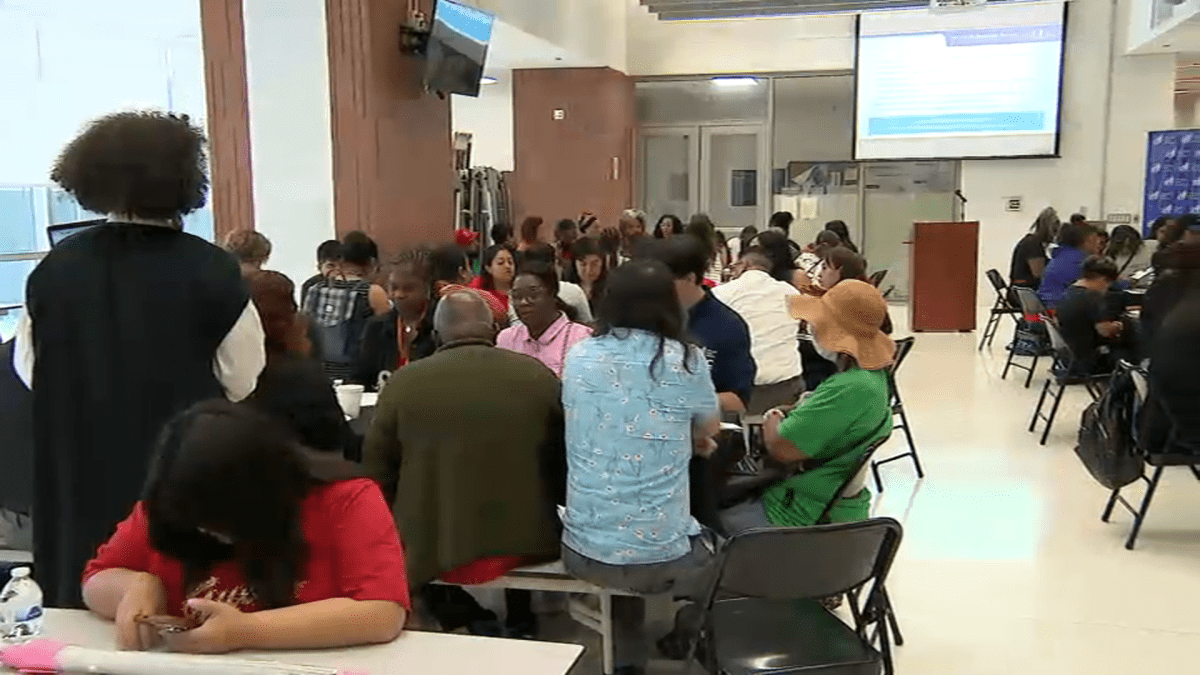Chicago Public Schools is facing a massive budget hole, as the district needs to find $734 million in funding or make cuts equaling that amount.
On Saturday, CPS hosted its fourth community feedback session, where residents came together to brainstorm ideas and shared what’s most important to them.
The latest session came two weeks after CPS laid off more than 1,400 employees. Nearly 55% of those cuts were to special education teachers and classroom assistants.
“We don’t have funds, so what exactly are you cutting now, more,” CPS parent Melina Pereyra questioned. “I know sadly we’re going to have to cut something, but I’m hoping it’s nothing that affects directly the kids.”
CPS chief budget officer Michael Sitkowski began the session by explaining the situation.
He said several factors contribute to the deficit.
One is that evidence-based funding is not being met. EBF was enacted in Illinois in 2017, aimed to achieve at least 90% adequacy in funding for all school districts by 2027. Under the EBF Act, the state would give $600 million to CPS alone, however, that has yet to happen.
COVID relief funding also ran out, contributing to the deficit, as well as CPS’ limited ability under state law to generate local revenue.
All of those factors are happening simultaneously to a growth in CPS spending.
Sitkowski detailed three factors for increased spending.
First, he said there are rising needs and services for students with disabilities. It’s costing CPS $450 million more today than 2019 staffing levels, despite federal and state funding for special education remaining nearly flat to 2019 funding levels.
He also said there is a rising cost of maintaining CPS buildings.
Another main factor for increased spending is the district’s historic pension obligations.
“We’ve seen $100 million of cost growth that has required us to divert operating resources away from classrooms since 2023 to make sure we’re meeting our obligation for teachers’ pensions,” Sitkowski said.
The current options for balancing the budget, according to CPS, are to obtain more funding from state and federal levels, cut staff and programming, cut non-teacher pension obligations or find one-time solutions like borrowing or furlough days.
Community members met in small groups on Saturday to brainstorm.
When it came time to share, many were hopeful to find ways to bring in revenue and not make cuts.
“What we ought to explore is partnerships with other businesses and other private companies,” one attendee said.
Others said cuts to personnel or salaries should come from the top administration down.
Meanwhile, the Chicago Teachers Union has made multiple posts online asking for Gov. J.B. Pritzker to call a special session to fund schools.
Some questioned why it took until July, just one month before the start of school, to host feedback sessions.
CPS needs to balance a budget by the end of August.
